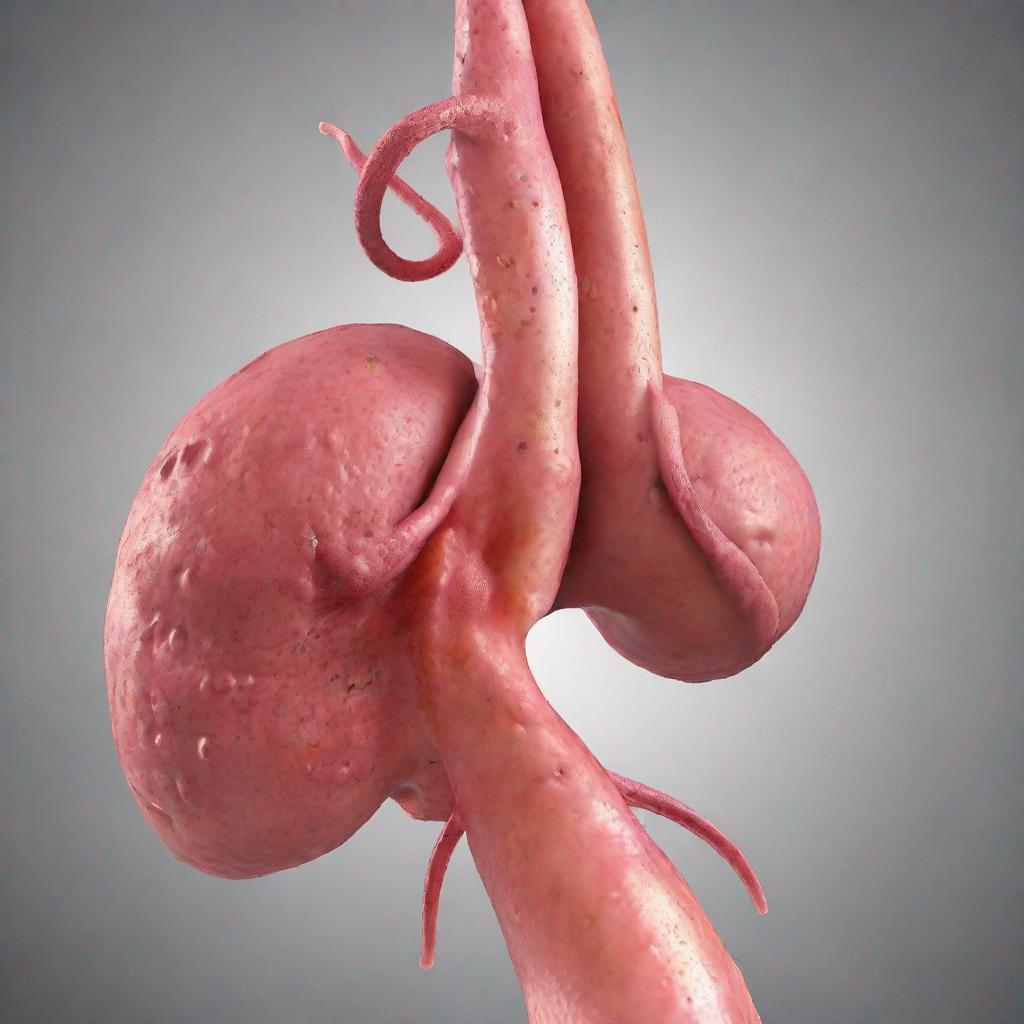## Stomach Cancer: A Comprehensive Guide
### Introduction
Stomach cancer, also known as gastric cancer, is a malignant tumor that develops in the lining of the stomach. It can affect any part of the stomach, including the cardia (where the stomach meets the esophagus), fundus (the dome-shaped upper portion), body, antrum (the lower portion), and pylorus (the opening to the small intestine).
### Symptoms
Stomach cancer often has no symptoms in its early stages. As the tumor grows, symptoms may include:
– Abdominal pain
– Bloating
– Nausea and vomiting
– Indigestion
– Heartburn
– Dysphagia (difficulty swallowing)
– Hematemesis (vomiting blood)
– Melena (black, tarry stools)
– Fatigue
– Weight loss
– Anorexia
### Diagnosis
Diagnosing stomach cancer typically involves:
– **Endoscopy:** A thin tube with a camera on the end is inserted into the stomach to visualize the lining.
– **Biopsy:** A sample of tissue is taken from suspicious areas and examined under a microscope.
### Prevention
Reducing the risk of stomach cancer includes:
– **Treating Helicobacter pylori infection:** This bacterium is a major risk factor for stomach cancer.
– **Maintaining a healthy weight:** Obesity increases the risk of stomach cancer.
– **Eating a balanced diet:** Include plenty of fruits, vegetables, and whole grains.
– **Limiting alcohol consumption:** Excessive alcohol intake is associated with an increased risk of stomach cancer.
– **Quitting smoking:** Smoking is a significant risk factor for stomach cancer.
### Types of Doctors Involved
The diagnosis and treatment of stomach cancer typically involves:
– Gastroenterologists (specialists in the digestive system)
– Surgical oncologists (specialists in removing cancer)
– Medical oncologists (specialists in treating cancer with medication)
– Radiologists (specialists in imaging)
### Treatment
Stomach cancer treatment depends on the stage of the cancer and the patient’s overall health. Options may include:
– **Surgery:**
– **Gastrectomy:** Removal of part or all of the stomach
– **Chemotherapy:** Drugs to kill cancer cells
– **Radiation therapy:** High-energy beams to destroy cancer cells
– **Targeted therapy:** Medications that target specific molecules involved in cancer cell growth
– **Immunotherapy:** Treatments that stimulate the body’s immune system to fight cancer
### Complications
Complications associated with stomach cancer and its treatment can include:
– **Gastric bleeding:** The tumor may invade blood vessels, leading to bleeding.
– **Intestinal obstruction:** The tumor may grow and block the passage of food through the intestines.
– **Perforation:** The tumor may cause a hole in the stomach wall, leading to leakage of gastric contents.
– **Malnutrition:** Surgery or other treatments may interfere with the ability to absorb nutrients.
– **Recurrence:** The cancer may come back after treatment.
### Prognosis
The prognosis for stomach cancer depends on the stage at diagnosis. Early-stage cancers have a better chance of being successfully treated.
Regular **surveillance** and **palliative care** are essential for monitoring and managing stomach cancer and its symptoms to ensure the best possible quality of life.




